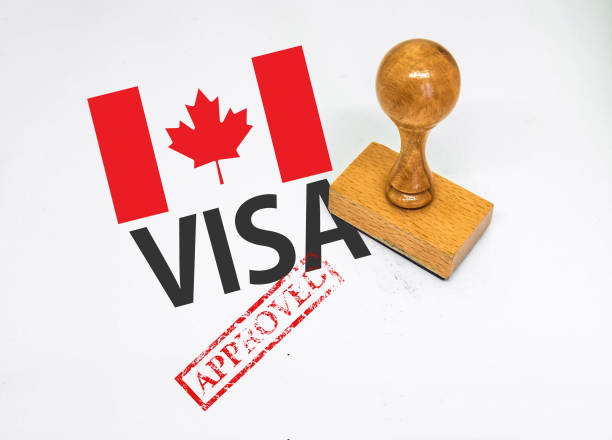Countries You Can Immigrate To With Autism
Individuals with autism spectrum disorder (ASD) who wish to immigrate abroad face some unique challenges. However, many countries do not bar or restrict immigration solely based on an autism diagnosis. With proper planning and research, those with ASD can successfully navigate immigration pathways around the world.
Here is an overview of some top destinations where immigrating with autism is possible.
United Kingdom
The United Kingdom has a strong history of inclusiveness and protecting the rights of individuals with disabilities. Their Equality Act prevents discrimination based on disabilities in employment, education, and access to services. Healthcare is also provided universally through the National Health Service.
For these reasons, the UK is considered one of the most accommodating countries for immigrants with autism. There are several potential UK immigration pathways:
Skilled worker visa – For those with in-demand professional qualifications and job offers from UK employers.
Student visa – To pursue academic degrees at UK universities. Supports like academic tutors are available.
Family reunification – If you have close relatives already legally residing in the UK.
Business/Investor routes – For those able to invest significant capital and create UK jobs.
With proper documentation of your condition and history, immigration approval is very feasible in the UK. Be sure to research the specific autism services and supports within the region of the UK you plan to live.
Canada
Similar to the UK, Canada has strong laws at both federal and provincial levels prohibiting discrimination based on disability. Publicly funded healthcare is also universally accessible for permanent residents.
Some of Canada’s immigration routes include:
Skilled professionals – Priority programs exist for technology talent, healthcare workers, and those with job offers from Canadian companies.
Business/Investor – Options for entrepreneurs and high net worth individuals wanting to expand into the Canadian market.
Family sponsorship – Canadian permanent residents or citizens can sponsor close family members for immigration.
Refugees – Those facing persecution or barriers safely accessing autism services in their home country.
Canada’s merit-based system makes immigration highly feasible for those with ASD who meet economic, skills, language, and health requirements. Be sure to research provincial differences in autism services.
Australia
Australia has a national disability strategy focused on inclusion, accessibility, and providing supports and accommodations for those managing disabilities. Their healthcare system also provides access to autism services for permanent residents.
Possible Australian immigration paths include:
Skilled visas – For priority professions needed in Australia or graduates of Australian universities.
Family visas – If sponsoring or being sponsored by close family members residing in Australia.
Business visas – For entrepreneurs, investors and those able to enhance innovation in Australia.
Refugee/Humanitarian – In compelling cases involving lack of autism supports in your home country.
With appropriate documentation, immigration to Australia with ASD is very feasible. Connecting with other Australian autism families can provide insights on services and resources around the country.
Sweden
Sweden has some of the world’s strongest laws protecting rights and inclusion for those with disabilities. Citizens and permanent residents receive government supports for autism services. Healthcare is also universally accessible.
Immigration pathways in Sweden include:
Skilled professional tracks – Sweden actively recruits foreign talent in sectors like tech, engineering, sciences and more.
Business/Investor visas – For entrepreneurs or those able to create jobs by launching Swedish companies.
Study visas – To enroll at Swedish universities, many with top programs in fields like neuroscience and psychology.
Family reunification – If you have close relatives already legally residing in Sweden.
Refugee/humanitarian – In limited cases where Sweden determines your home country cannot safely accommodate your autism needs.
With Sweden’s welcoming environment and laws protecting those with disabilities, immigration for those with autism is very achievable. Connecting with Swedish autism organizations can provide helpful insights.
United States
The United States has comprehensive legislation like the Americans with Disabilities Act that prohibits discrimination based on disabilities like autism. Accommodations and services are legally mandated. Healthcare coverage also now extends to those with pre-existing conditions.
US immigration pathways include:
Skilled visas – For workers with in-demand college degrees or professional skills that align with US labor needs.
Family-based visas – If sponsoring or being sponsored by close family members already legally residing in the US.
Business/Investor visas – For entrepreneurs and investors able to create US jobs and enhance the economy.
Refugee/humanitarian programs – In compelling cases involving lack of autism supports and services in home countries.
With proper medical documentation and a clean background, immigration to the US with autism is very possible. Connecting with US autism organizations can provide helpful service insights.
New Zealand
Similar to Australia, New Zealand has strong national policies prioritizing inclusion and protections for those with disabilities. Permanent residents can access government autism services and supports. Healthcare is also universal.
New Zealand immigration pathways include:
Skilled visas – Especially in fields like healthcare, engineering and technology where NZ has talent shortages.
Business/Investor visas – For entrepreneurs able to launch companies and enhance the NZ economy.
Family-based visas – If sponsoring or being sponsored by close relatives already legally residing in New Zealand.
Refugee program – For compelling humanitarian cases involving lack of autism services in your home country.
With proper documentation, those with ASD can successfully immigrate to New Zealand. Connecting with local autism organizations can provide insights on services and supports nationwide.
Preparing Your Application
When applying to immigrate with autism, some key tips include:
- Disclose your condition upfront and include all medical documentation.
- Highlight skills, assets or investment ability that offset any perceived “burden”.
- Research public autism services and costs in your destination country.
- Get references from autism specialists vouching for your functionality.
- Be prepared to show sufficient assets or insurance to cover private treatment if required.
- Identify any family, community or professional supports you will leverage abroad.
- Disclose any pastCriminal issues that could lead to denial.
With proper planning and research, many destinations worldwide can successfully accommodate immigrants managing autism. Focusing applications on your abilities, assets and strong supports system is key.
Conclusion
Immigrating internationally with autism is very feasible with the right approach. Numerous countries prohibit denial based solely on an autism diagnosis and have pathways to secure necessary services. Performing in-depth research and working with knowledgeable immigration attorneys can help make the process smooth and successful. With realistic plans and preparations, autism can be managed successfully in countries around the globe.









